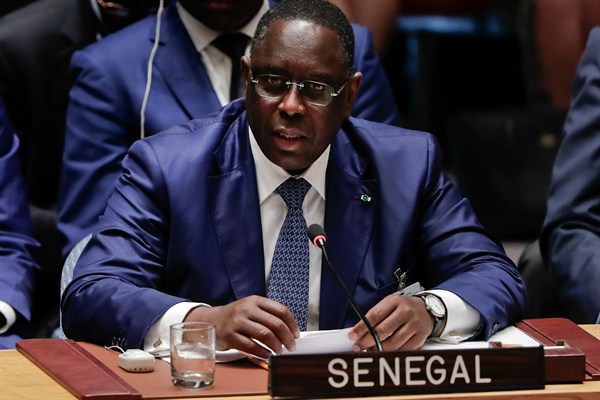On July 30, Senegal held legislative elections, the second such vote since President Macky Sall took office five years ago. He and his party won overwhelmingly, claiming 43 of the country’s 45 electoral districts in a victory that underscored Sall’s strong position as his re-election campaign approaches in 2019. But a tough electoral battle in the capital, Dakar, as well as an opposition victory in the city of Touba, suggest that his political supremacy is far from complete. And opposition accusations of intimidation and voting irregularities raise questions about the state of democracy in Senegal.
Heading into the recent vote, Sall’s coalition, known as Benno Bokk Yakaar or United in Hope (BBY), already had a commanding majority in the National Assembly. In the July 2012 legislative elections, held just three months after Sall’s upset presidential victory, BBY won 119 of 150 seats. Sall’s forces also scored a decisive win in a constitutional referendum last year, which was approved by some 63 percent of voters—albeit with low turnout of around 38 percent.
The battle lines drawn in the referendum were the same ones at play in Sunday’s legislative elections, with two prominent personalities facing off: Sall and the mayor of Dakar, Khalifa Sall, who is not related to the president. The latter belongs to the once-powerful Socialist Party, which ruled Senegal from 1960 to 2000 but is now fractured, with some of its leading lights in Macky Sall’s camp. Although he is the mayor of Senegal’s capital, Khalifa Sall has been in detention since March, accused of embezzling public funds.

